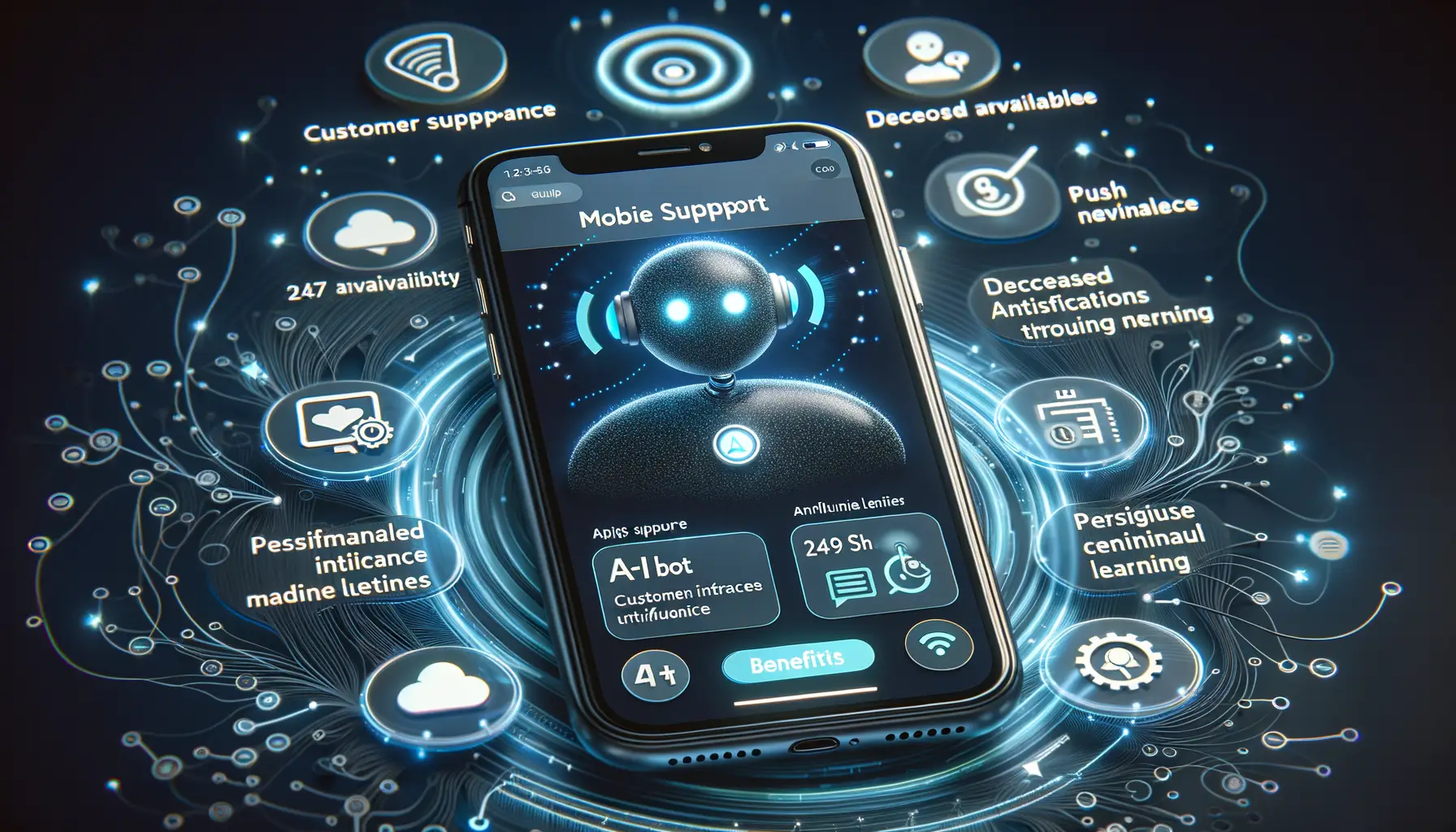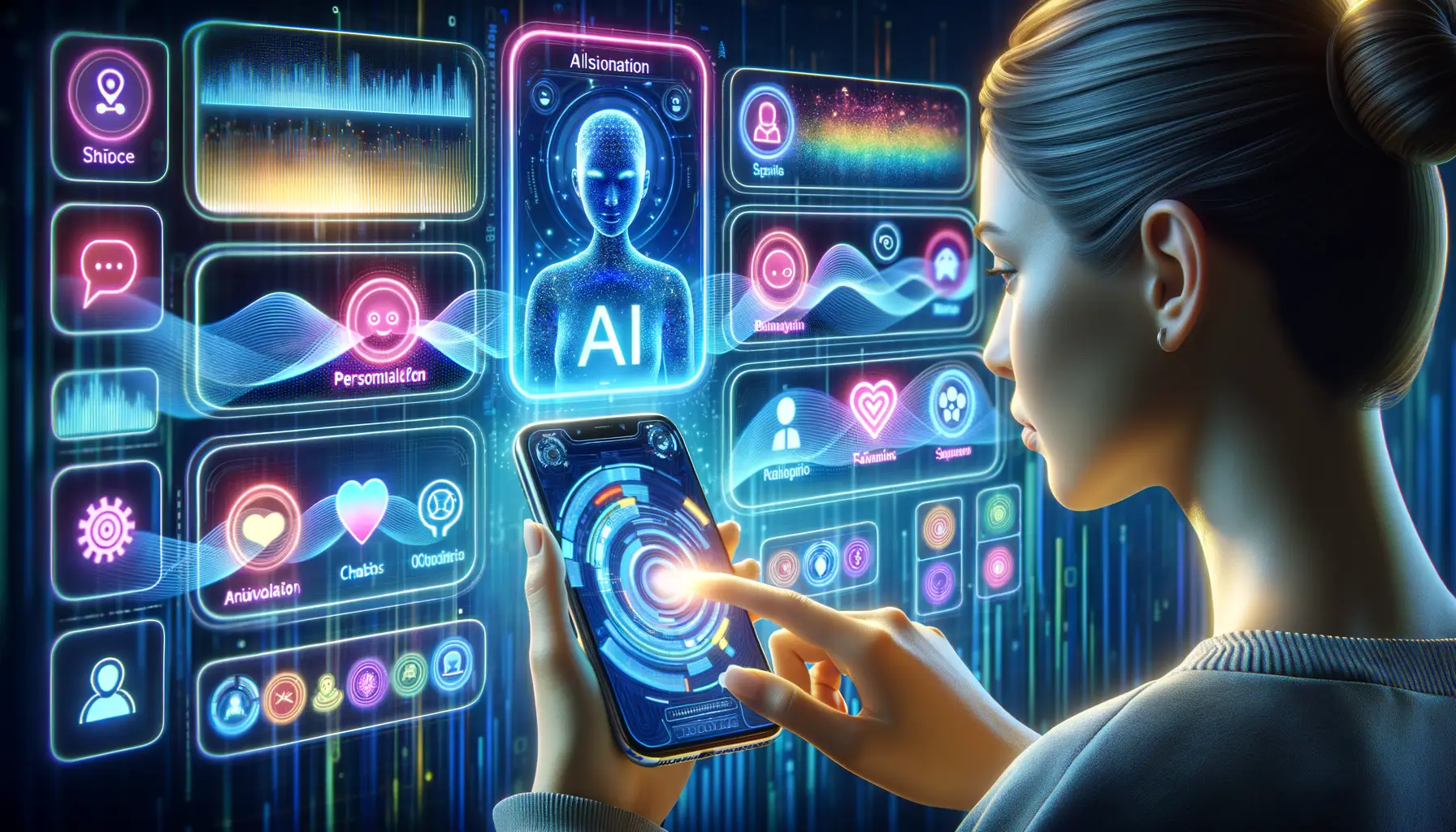The Role of AI in Revolutionizing Mobile App Customer Support
Redefining Customer Support Through AI
Picture this: You’re stuck with an app issue and, instead of waiting on hold for what feels like a lifetime, you get instant answers from a virtual assistant that’s as sharp as your favorite tech-savvy friend. That’s the magic of AI in today’s mobile app support! Gone are the days of robotic, repetitive responses. These advanced systems can decode your questions—whether it’s about an unexpected error or a confusing update—and respond with stunning accuracy.
What makes it even more jaw-dropping? AI isn’t just about answering questions. It learns every time it interacts with users. Like a dedicated customer support ninja, it picks up on patterns, anticipates needs, and crafts solutions that feel tailored just for you.
- Natural Language Processing (NLP): Ever asked a chatbot something casual like “Why isn’t this working?” and got an answer? That’s NLP turning human-speak into actionable insights.
- Sentiment Analysis: If frustration creeps into your messages, AI can pick up on that tone—and shift the experience to calm and helpful.
With AI steering the ship, mobile apps are transforming from mere tools into personalized problem-solving companions.
Key AI Technologies Enhancing Customer Support

AI-Powered Chatbots: The 24/7 Problem-Solvers
Let’s talk about the unsung heroes of customer support—AI-powered chatbots. These little marvels have become the ultimate multitaskers. Picture this: it’s 2 a.m., and your user is locked out of their account. Instead of waiting for business hours, an AI chatbot swoops in, offering instant solutions like password resets or app navigation tips. They don’t just reply—they anticipate. With natural language processing (NLP), these bots don’t come off as bland robots; they “chat” like human support agents, understanding slang, emojis, and even your irritated tone.
And here’s the cherry on top—they learn! Over time, they analyze user interactions and fine-tune themselves. It’s as if every conversation makes them more empathetic and efficient. They’re not just assistants; they’re evolving problem-solvers that never clock out.
Predictive Analytics: Anticipating Problems Before They Arise
The magic of predictive analytics lies in its ability to foresee issues before your users even realize there’s a problem. Imagine an app noticing a pattern: users are frequently hitting a dead-end on a specific screen. Instead of waiting for frustrated complaints to pile up, predictive tools alert developers instantly, allowing fixes before negative reviews trickle in.
Here’s what these tools bring to the customer experience table:
- Proactive solutions that address bugs preemptively.
- Personalized recommendations based on past user behavior.
- Real-time insights to optimize app performance dynamically.
It’s like giving your mobile app the gift of foresight—a sixth sense built entirely on data.
Benefits of Integrating AI into Mobile App Support

Why AI is a Game-Changer for Mobile App Support
Imagine asking a question in your favorite app and getting an instant, accurate response—day or night. This isn’t magic; it’s the power of integrating Artificial Intelligence into mobile support. AI doesn’t just make support faster; it transforms how users experience your app.
Here’s why it stands out:
- 24/7 availability: With AI-powered chatbots, “office hours” are a thing of the past. Whether it’s 2 PM or 2 AM, your users feel heard and cared for.
- Lightning-fast solutions: Ever been frustrated waiting for an agent? AI tools analyze queries within moments, delivering solutions before you’d even finish typing a complaint!
- Hyper-personalization: AI remembers everything. From your order history to your preferred support tone, it wraps customer care into a seamless, tailored experience.
The Emotional Connection AI Brings to Support
Oddly enough, AI can bring a deeply human touch to customer service. How? Picture an app responding to you by name, understanding your tone (yes, AI detects emotion), and offering empathy in its responses. With Natural Language Processing (NLP), AI-powered systems don’t just “speak,” they converse. These tools mimic the warmth of human interaction while eliminating human error.
It’s like having the ideal customer service agent—one who never gets tired, impatient, or forgets your needs. That’s not just efficiency; that’s loyalty-building brilliance.
Challenges and Considerations for AI Implementation

Behind the Curtain: What Makes AI Implementation Tricky?
Stepping into the world of AI can feel like opening Pandora’s box. While the rewards are tantalizing, there are hurdles—and some are more like mountains. One major challenge? Data dependency. AI thrives on data, but if your mobile app support system lacks enough quality inputs, you’re essentially handing a chef an empty pantry and asking for a gourmet meal.
Then come the costs. Developing and training AI models isn’t exactly a pocket-change investment. The technology may promise efficiency, but up-front, it can easily leave you gulping at your budget spreadsheet. And don’t forget the human factor—your team. They’ll need training to work alongside these digital masterminds. After all, even the smartest machine can fumble without humans guiding its ethical and operational compass.
- Over-reliance on AI: Too much automation may alienate users craving a human touch.
- Bias risks: If prejudiced data sneaks in, you’ll unintentionally reinforce unfair responses.
- Integration struggles: Merging AI smoothly with your existing tech stack? Easier said than done.
Is Your AI Secure Enough?
Let’s talk about the elephant in the room: security. With AI handling sensitive user data, one misstep could lead to your customers distrusting your app faster than you can say “data breach.” Cyber-attacks targeting AI systems are growing more sophisticated, exploiting vulnerabilities in algorithms and APIs.
Picture this: You design the perfect AI assistant, only to have hackers manipulate it into giving wrong or dangerous responses. That’s not just an IT hiccup—it’s a full-blown PR crisis. The solution? Layer your AI defenses with encryption, rigorous testing, and ongoing updates. It’s better to be seen as paranoid today than apologetic tomorrow.
Future Trends in AI-Driven Mobile App Customer Service

Personalized Experiences Powered by AI
Imagine opening your favorite mobile app and feeling like it knows you better than your closest friend. That’s the future of AI-driven customer support. With advancements in technologies like Natural Language Processing (NLP), apps will soon become conversational pros, adapting their tone, style, and even word choices to suit your preferences.
Think about this: instead of a generic “How can we help you today?” greeting, your app might say, “Welcome back! Need help with your latest order or exploring something new?” It’s not just functional; it feels human. AI is evolving to recognize emotions in language, offering not only solutions but also empathy for frustration or excitement for success.
- Hyper-personalization: AI giants like ChatGPT are enabling apps to tailor responses based on user history, interests, or even mood.
- Proactive suggestions: Your app might suggest FAQs or features you didn’t know existed before you even ask. It’s like a mind-reader—but less creepy.
AI Agents with a Human Touch
Soon, AI won’t just respond; it’ll predict. Advanced machine learning algorithms are paving the way for virtual assistants that sound and act more human than ever. Imagine apps where support agents discuss your issue with you in real time, using slang or humor in the same way your best friend might.
The secret sauce? Real-time learning from previous interactions. These virtual helpers are constantly improving, understanding, and adjusting themselves, meaning fewer escalations to human agents. It’s not replacing people—it’s teaming up to give users faster, smarter, and surprisingly heartfelt service.






